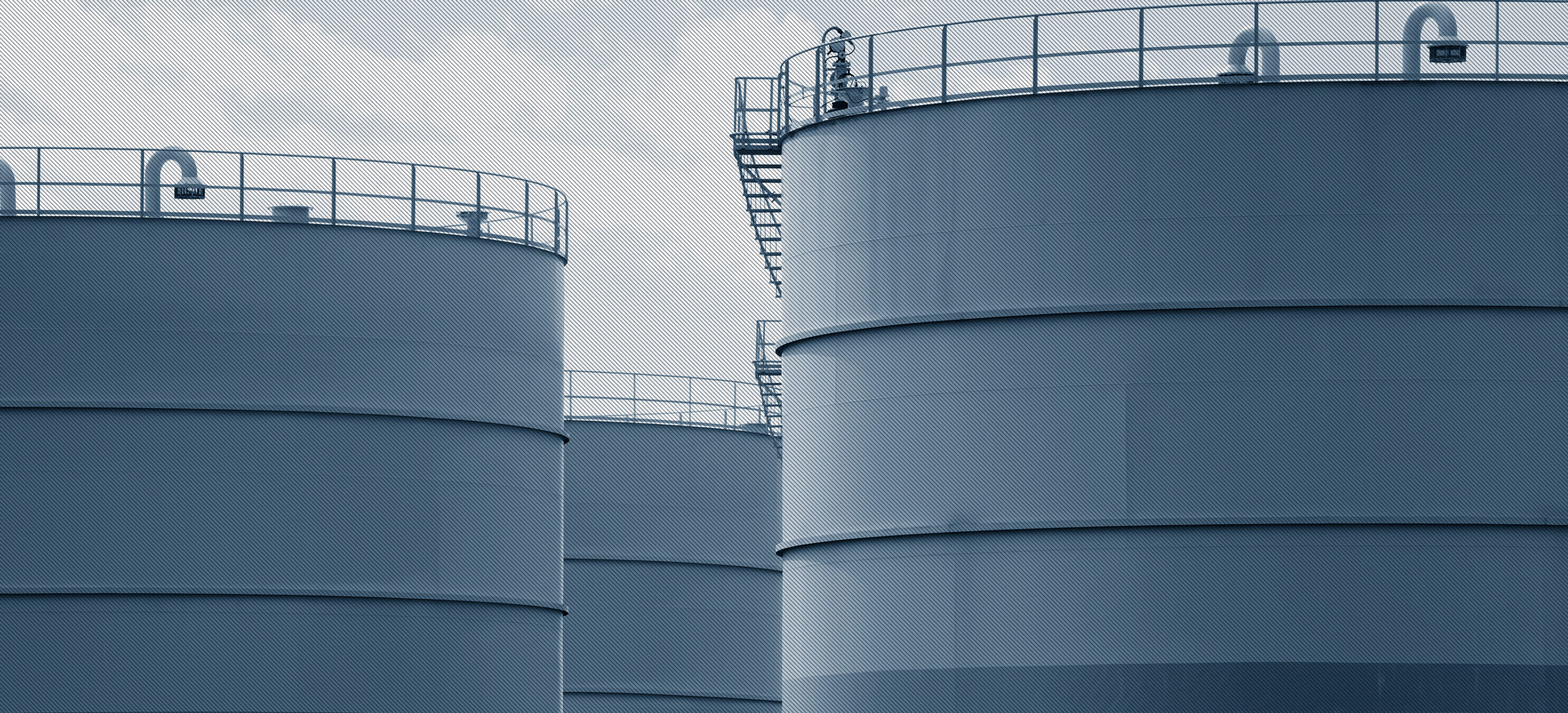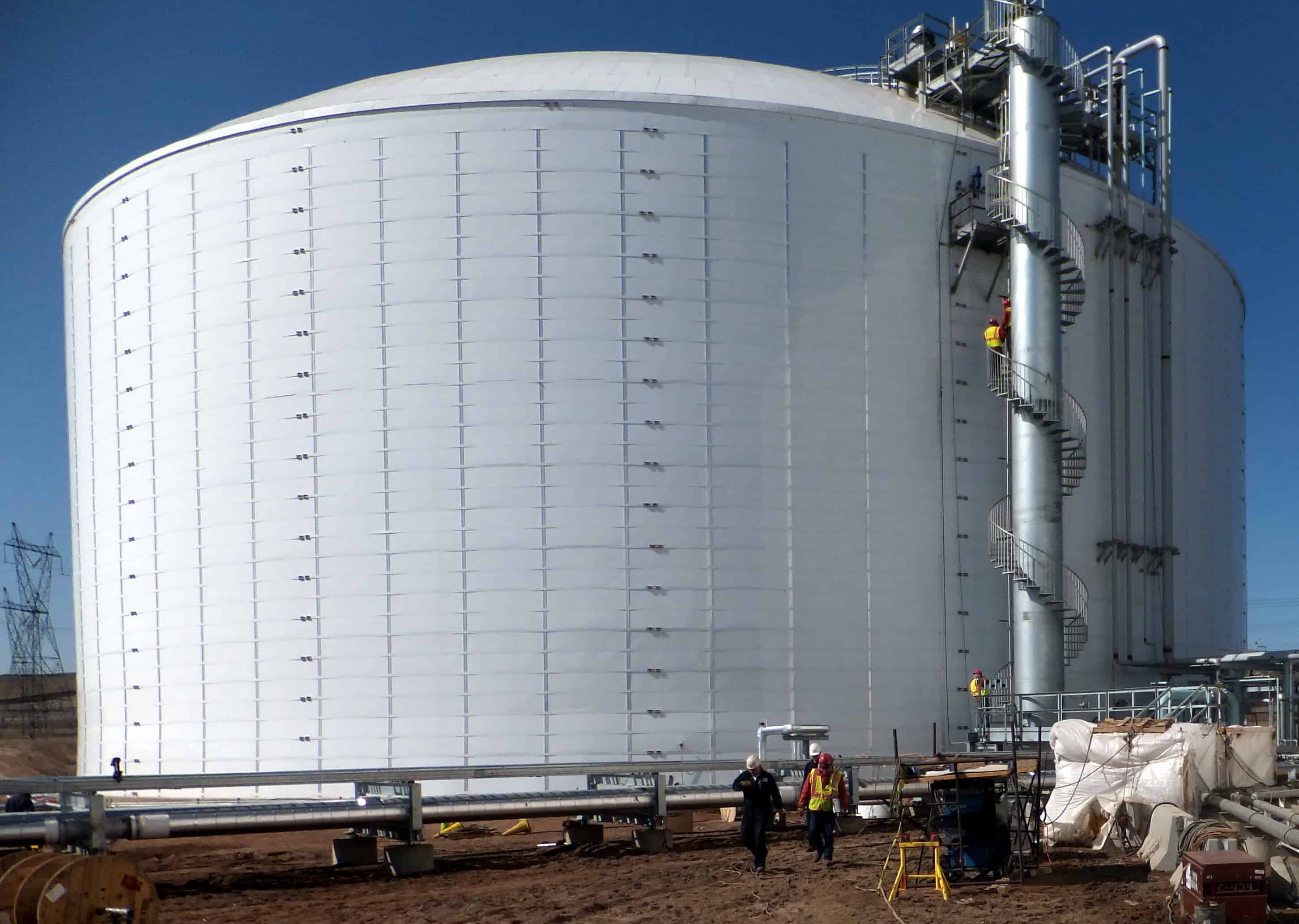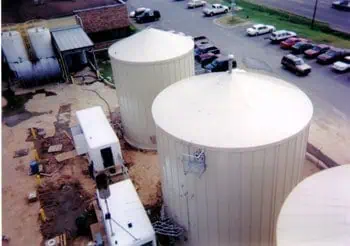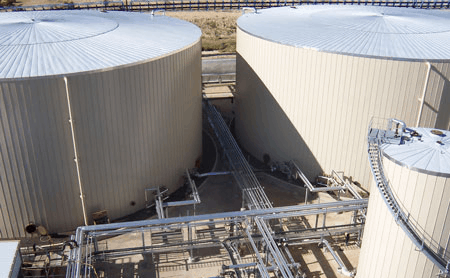
Oil Tank Insulation

Before selecting an oil tank insulation system, it’s important to understand the benefits that thermal insulation provides. Carefully designed and properly installed insulation not only protects the tank itself, but it protects the oil held within it from harsh conditions, such as extreme temperatures, solar radiation, and other environmental conditions. This protection, in turn, will extend the lifespan of the tank and ensure the quality of the oil that it holds.
Fluctuating temperatures and humidity levels can result in vapor expansion and contraction, which can result in serious losses. High-quality thermal insulation can significantly minimize this loss, which, combined with the extended life expectancy of the tank, can translate to considerable cost savings. Furthermore, reduced heat loss lowers carbon dioxide emissions, which can help to prevent potentially hazardous materials from polluting the environment. Additionally, when oil is stored in a well-insulated tank, the risk of freezing and or deterioration
An Industry Leader
We’ve been delivering premium-quality oil tank insulation products for over 40 years.
A Track Record of Success
We have successfully designed and installed oil tank insulation systems for clients around the world.
Customized Solutions
Your insulation system will be custom-designed with your specific needs in mind.
Type of Thermal Insulation Materials for Oil Tanks
Oil tank insulation systems can be crafted from a variety of materials. Some are conventional and economical and others are rare and more costly, but highly effective. Two types of materials that are highly suitable for thermal insulation and that are often used to protect oil tanks include foams and lightweight composites.
- Foams. Melamine, polystyrene, polyamide, polyurethane, and closed-cell are some of the different types of foam materials that are used for oil tank insulation. These foam materials have a low density, are lightweight, and are fire-resistant, all qualities that make them efficient insulators.
- Lightweight composites. Fiberglass, silica, mineral wool, cellulose, and even ceramics are some of the lightweight composite materials that can be used to insulate oil tanks. These materials are very effective and because they’re readily available, they tend to be more economical than foam insulation. There are some downsides to be aware of, however; for example, while mineral wool is an excellent insulator, it fails to provide fire protection, and though fiberglass is inexpensive, it has to be handled with extreme care and can be challenging to install.


Thermacon: A Globally-Recognized Leader in The Oil Tank Insulation Product Industry
Thermacon, a US company based in Florida, is a globally-recognized leader in the tank insulation industry. For more than 40 years, we have been designing, engineering, manufacturing, and installing various types of tank insulation products for companies around the world. Our products are custom-designed to meet the specific needs of the industries and applications they’re intended for. We offer a large selection of high-quality materials, and our talented and highly experienced engineering staff takes all requirements into consideration to craft insulation systems that exceed expectations.
When you choose Thermacon, you can feel confident knowing that you will be working with seasoned professionals that have a proven track record of success. To begin the process of designing an effective, reliable, and aesthetically pleasing oil tank insulation system, contact us today.

